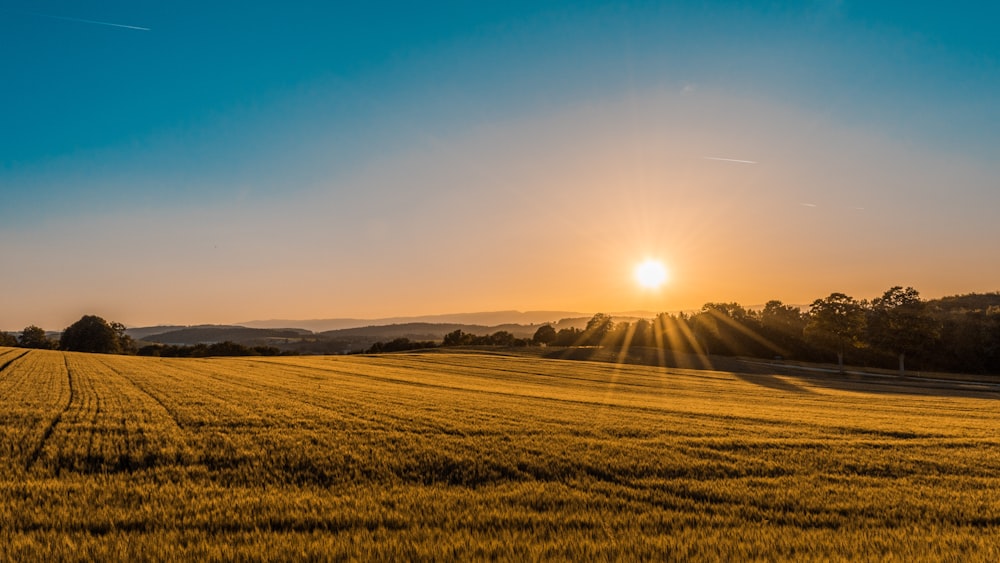The Silent Revolution
How Rojava Is Rewriting Ecology's Future in the Rubble of War
By Dr. Elena Rivers, Environmental Anthropologist
Contents
An Oasis of Radical Change
In the smoldering aftermath of Syria's civil war, a quiet revolution is unfolding—one that merges tree planting with gender liberation, direct democracy with oil resistance. The Autonomous Administration of North and East Syria (AANES), known as Rojava, has become a living laboratory for social ecology: a philosophy arguing that ecological collapse stems from human hierarchies. Here, amid conflict and embargo, a society is testing whether ecology can be revolutionized not through tech fixes, but by dismantling patriarchy, capitalism, and the state itself 1 6 .

Rojava at a Glance
Location: Northeast Syria
Population: ~2 million
Established: 2012
Key Concept: Democratic Confederalism
Rojava's experiment offers more than hope; it provides a blueprint. As climate catastrophe accelerates, this region—scorched by war and sanctions—demonstrates how social reorganization might heal our planet.
I. The Roots of Revolution: From Bookchin to the Battlefield
The Science of Social Ecology
Social ecology, pioneered by American philosopher Murray Bookchin, posits a radical idea: ecological crises are social crises. Environmental destruction isn't incidental to capitalism—it's woven into its fabric. Bookchin traced this to 5,000 years of hierarchy: the domination of humans over nature mirrors the domination of humans over humans 1 4 .
Öcalan's Pivot
Imprisoned Kurdish leader Abdullah Öcalan reshaped Bookchin's theories into democratic confederalism—a governance model with three pillars: direct democracy via neighborhood assemblies, women's liberation as the foundation of social change, and ecological sustainability as non-negotiable 1 .
"Nearly every ecological issue is also a social issue [...] Our ecological dislocations have their sources in social dislocations."
Jineolojî: Science by Women, for Life
Central to Rojava's ecology is jineolojî ("women's science"). Developed by Kurdish feminists, it asserts that patriarchal control of knowledge enabled environmental ransacking. Jineolojî reclaims science for society—training women in agroecology, health, and resource management 5 .
"The decline of society began with the fall of women."
II. The Living Laboratory: Make Rojava Green Again
The Experiment
In 2018, the Internationalist Commune of Rojava launched Make Rojava Green Again (MRGA)—a campaign testing whether social ecology could revive a land ravaged by war, drought, and Assad's oil-centric policies. Their hypothesis: Ecological healing requires social restructuring 6 7 .

Methodology: Seeds and Solidarity
MRGA's approach blended theory with survival:
Reforestation nurseries
Established communal nurseries in Derik and Kobane, prioritizing native species (e.g., Pistacia atlantica, oak).
Water sovereignty
Piloted greywater recycling systems using repurposed war scrap.
Energy transition
Solar microgrids for households, despite embargoes on panels.
| Project | Trees Planted | Women Trained | Survival Rate |
|---|---|---|---|
| Hayaka Reserve | 35,000 | 120 | 68% |
| Derik Urban Greenbelt | 12,500 | 85 | 72% |
| Internationalist Academy | 8,000 | 45 | 81% |
Results: Life in the Crossfire
"Solar panels here are overpriced black-market goods. We dream of a solar factory—but how under embargo?"
III. Data Deep Dive: Ecology by the Numbers
| Canton | Women in Councils | Eco-Cooperatives | Forest Cover Increase |
|---|---|---|---|
| Kobane | 48% | 32 | +9.3% (2015-2023) |
| Cizîrê | 42% | 41 | +12.1% |
| Afrin* | 38% (pre-occupation) | 18 | -22% (after Turkish invasion) |
*Afrin occupied by Turkey since 2018; forests replaced by commercial logging .
| Energy Source | % of AANES Revenue | Household Access | Carbon Impact |
|---|---|---|---|
| Oil | 80% | 0% (exported) | High |
| Solar | 5% | 18% | Near-zero |
| Diesel Generators | 15% | 76% | Severe |
IV. The Scientist's Toolkit: Building Social Ecology
| Concept/Tool | Function | Real-World Example |
|---|---|---|
| Democratic Confederalism | Replaces state with communal councils | 4,000+ neighborhood assemblies in NE Syria |
| Dual Leadership | Ensures gender parity in decisions | All councils co-chaired by woman/man |
| Jineolojî Academies | Trains women in ecology/technology | 120 graduates managing reforestation |
| Water Communes | Localized, equitable water distribution | Arab-Kurd water sharing in Heseke |
| Economic Cooperatives | Democratizes production/prevents extraction | 500+ co-ops (agriculture, recycling) |
Democratic Confederalism
Decentralized decision-making through local assemblies
Jineolojî
Women's science as foundation of ecological knowledge
Ecology Communes
Local environmental management cooperatives
V. Global Lessons: Soil, Not Silicon
Rojava's experiment defies Western climate "solutions":
1. Ecology starts with social justice
You can't "save" nature while oppressing people.
2. Women's liberation = ecological healing
Patriarchal systems drive environmental ruin 5 .
As Turkish drones bomb water stations and Europe funds methane detectors, Rojava reminds us: the climate fight isn't technical—it's political. The most vital "carbon tech" might be a women's assembly deciding how to plant olives on bullet-riddled land.
"We're not just protecting nature; we're ending 5,000 years of patriarchy's war against life."